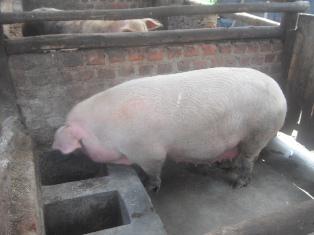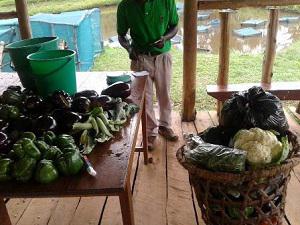Tusingwire John Bosco
Other projects
The project enhances Biodiversity Conservation through Organic Piggery Project to the people neighbouring the protected area of Bwindi. It empowers the local people to become more self-reliant mitigates encroachment of the protected area for poaching and gathering.

Piggery project at the demostration site.
The project is located in the north wing of Bwindi Impenetrable National Park in Kayonza sub county Kanungu district, in Buhoma village along Buhoma-Bwindi road. The project protects BINP that accommodates the oldest and most biologically diverse rainforests dating back over 25,000 years and containing almost 400 species of plants. More famously, this impenetrable forest also protects an estimated 480 mountain gorillas – roughly half of the world’s total population including some habituated groups that are tracked. This biologically diverse region also provides shelter to a further 120 mammal species, including several primate species such as baboons and chimpanzees, as well as elephants and antelopes. There are also about 350 species of birds hosted in this forest including 23 Albertine Rift endemics.

Quality and on demand vegetables produced by farmers with use of manure from pigs
The project uses business solutions that impact the environment. The project partners with Uganda Wildlife Authority, Flora and Fauna International and other conservation organisations to train and support farmers in sustainable agribusiness. Batwa Pygmies and other indigenous people, who would otherwise be poachers, learn and use sustainable agribusiness. The Initiative is aware that problems are also opportunities. The project understands the growing need for food in the local community, especially in tourism lodges of Bwindi Park as an advantage to make money while solving problems. Our farmers who are busy in agricultural activities have forgone poaching and other illegal activities.
The project has an environmental conservation and education component, and with other partners conveys a conservation message to the communities. The message emphasizes the benefit of wildlife protection and sustainable resource management. It teaches ecosystem functions and values, such as rainfall formation, water sources, water catchment and source of insects and fresh winds that pollinate our crop. It also puts forward that these various components lead to jobs, and building and maintaining our schools and infrastructure. The project will also demonstrate how piggery production can provide manure to grow vegetables around homes among beneficiaries.